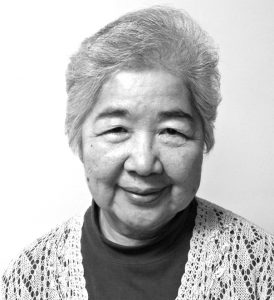
In 1984, she focused her attention in Tokyo where she supervised a day center for skid row elderly while also teaching English at a Buddhist junior college, at a vocational training school for homeless teenagers, and a nursing school.
With the influx of migrant workers in Japan in 1999, she joined the solidarity center in the Yokohama Diocese to work at the Philippine Desk. She accompanied migrant women who had been abused by their husbands or partners. She also translated case histories, newsletters and reports from Japanese to English.
Currently, Sister Elizabeth divides her ministries into four groups where each one caters to the needs of the people whom she shares her life with. She is part of Kalakasan, a migrant women empowerment center where she does the administrative, financial and networking tasks and participates in a bicultural children’s program designed for traumatized children who have witnessed their mothers being battered. She finds time to be part of the Oriens Institute for Religious Research publication Japan Mission Journal of which she is a member of the editorial board involved in editing, proofreading and planning for future articles. She also belongs to the Japan Catholic Lay Missionary Movement where she works with the formation team that trains people for overseas mission in Southeast Asia. She concentrates on helping them improve their English Communication skills. A member of the Philippine Center at Maryknoll Tokyo, she does migrant outreach, counseling and visiting migrants at police stations and detention centers, as well as engaging in religious education in Japanese for children of migrant workers who haven’t been able to fit into the regular parish system.
